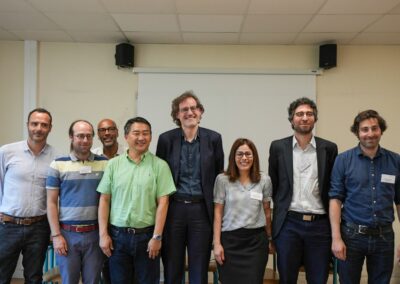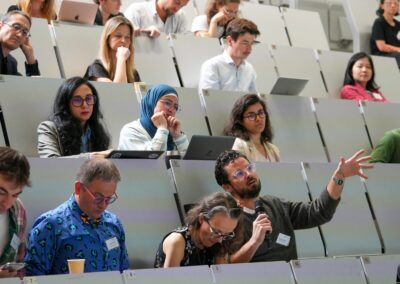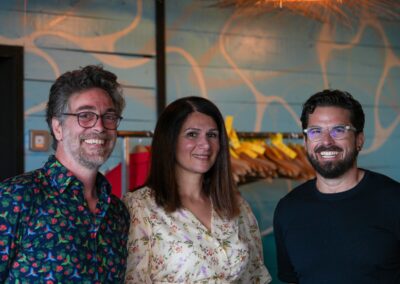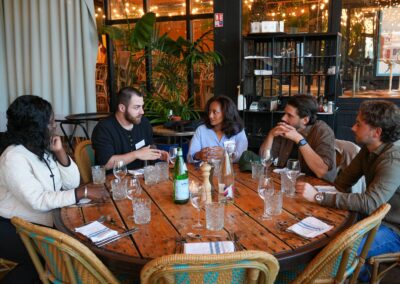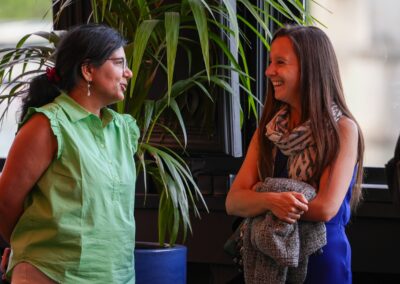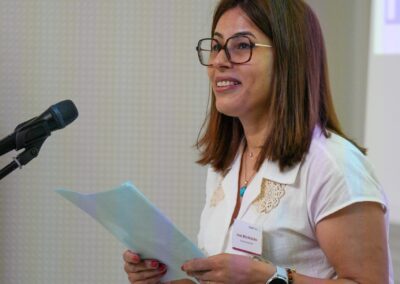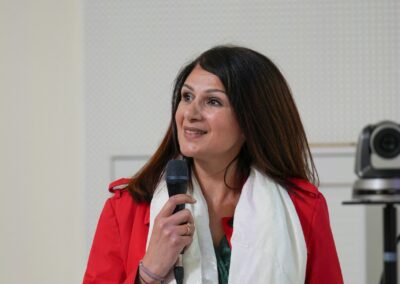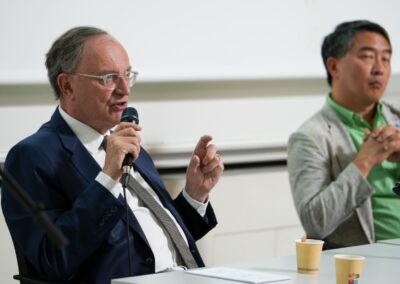For this 8th edition, the congress on social and environmental accounting research (CSEAR) highlighted ‘standardization and the sustainability transition.’ A theme that resonates with the changes in our world and with Université Paris Cité’s commitment to planetary health.
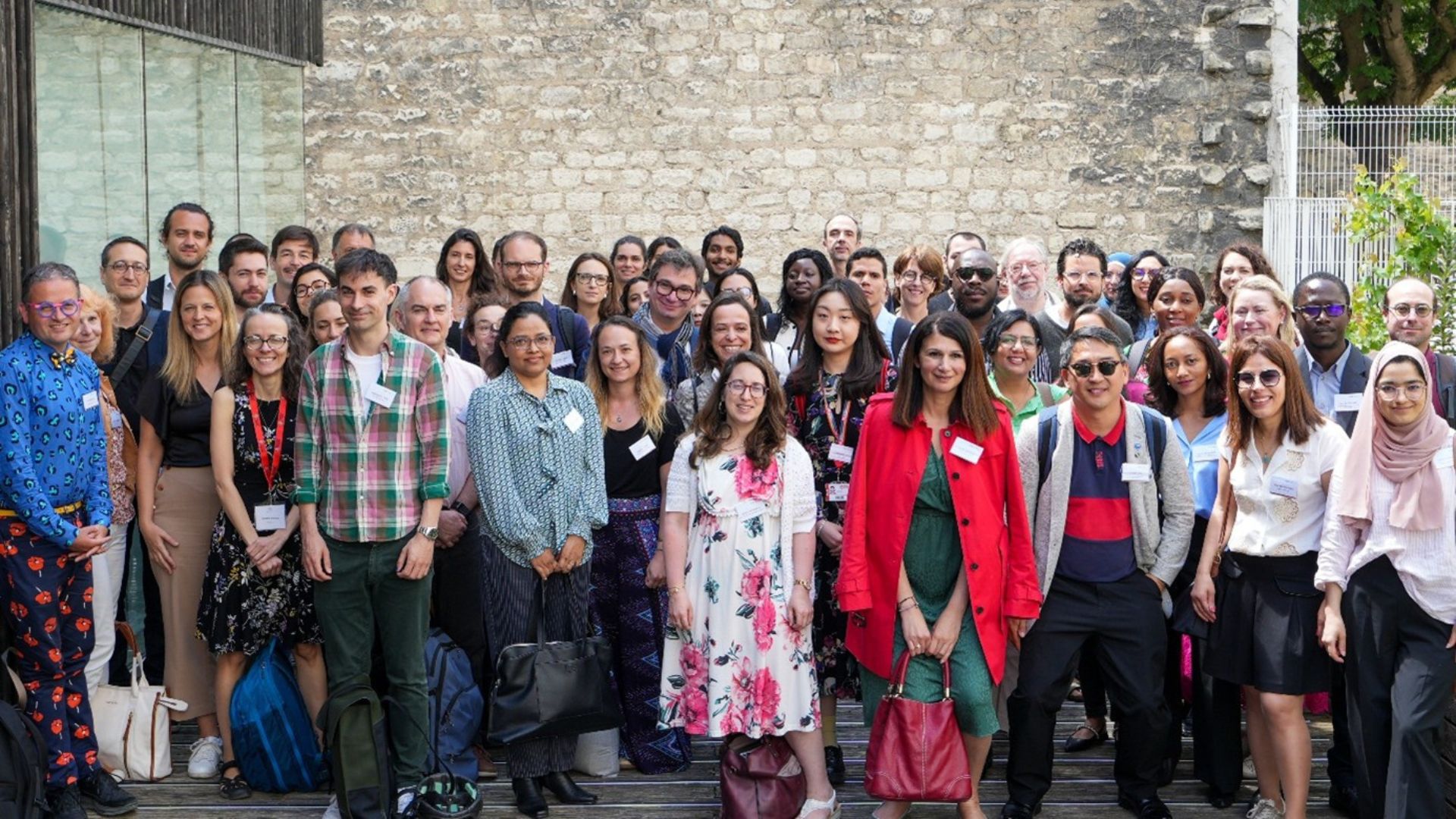
Over two days, the scientific community gathered for conferences, workshops, and doctoral colloquia to exchange ideas, debate, and share their work on the major challenges of standardization and the sustainability transition.
“This year’s theme resonates deeply with the transformations we are all experiencing: in the world, in our institutions, and in our disciplines. It is a complex subject, sometimes debated, but essential.”
The main objective of this congress is to promote research in Social and Environmental Accounting (SEA), particularly in France. While French researchers represented the majority of participants, the event also welcomed researchers from Canada, Australia, the United Kingdom, Belgium, Spain, Italy, Morocco, Ireland, and Côte d’Ivoire. This international openness is essential to enrich exchanges and advance research on sustainability.
The congress was organized by the IUT Rives de Seine and the Business Law and Management Center, with the support of students from the IUT’s GEA Bachelor program. Many thanks go to the organizing committee of the event: Amel Ben-Rhouma (IUT de Paris-Rives de Seine, CEDAG EA 1516), Carine Boiteau (IUT de Paris-Rives de Seine), Charles H. Cho (Schulich School of Business, York University), and Jonathan Maurice (Toulouse School of Management).
This event also benefited from the support of many key sustainability actors in France, including the Graduate School Sustainability and Transitions of Université Paris Cité, the “Cercle des Comptables Environnementaux et Sociaux” (CERCES), .the Ecological Accounting Chair, and the Francophone Accounting Association.”
High-quality presentations
“It is very important that the sustainability ecosystem, sustainability development, and sustainability reporting continue to grow, because today we often see reactions of rejection stemming from misunderstanding. Change has been quite rapid: Europe has decided to move very quickly in this area, and perhaps not everyone was ready. Sustainability means duration; it is about looking at the medium and long term, and it is essential for value creation by the economy and by companies, if we want to move beyond the extremely short-term patterns that tend to prevail today and have prevailed until now.
We are facing fundamental transitions: environmental transition, social transition, governance transitions, the relationship of the company with its environment… all of this is absolutely key. Therefore, it is necessary to create an ecosystem of competent people, of talents who understand the importance of sustainability, in order to promote change and move in the right direction.”
“Let us move away from a shallow mindset and consider the bigger picture and its consequences. We need to try to think globally. I’ll share an example with you, involving my daughter and Shein. She realized that behind this fast-fashion brand, there was child labor. She asked herself whether she really needed it.
To change consumption patterns, people need to be aware of the consequences of their actions, beyond the boundaries of the companies involved and beyond the borders of France and Europe.’
An event highlighting Université Paris Cité’s sustainable development policy
“One of the objectives of the Développement Durable & Responsabilité Sociétale et Environnementale strategy is to raise awareness and provide training for all students and staff on socio-ecological issues, equipping them with the tools to become conscious and engaged citizens. I welcome this initiative, enthusiastically led by the students of the IUT, who were heavily involved in organizing this congress as part of their educational project.
Université Paris Cité’s research strategy must increasingly take sustainability challenges into account, consider interactions with society, and foster an ethical framework regarding research responsibility in light of resource use. This is the spirit of the congress, with the richness of a program linking environmental issues to social and environmental accounting, allowing us to broaden our perspectives and thus exchange views and experiences.”
All the photos in this article were taken by Louis de Lestrange.
À lire aussi
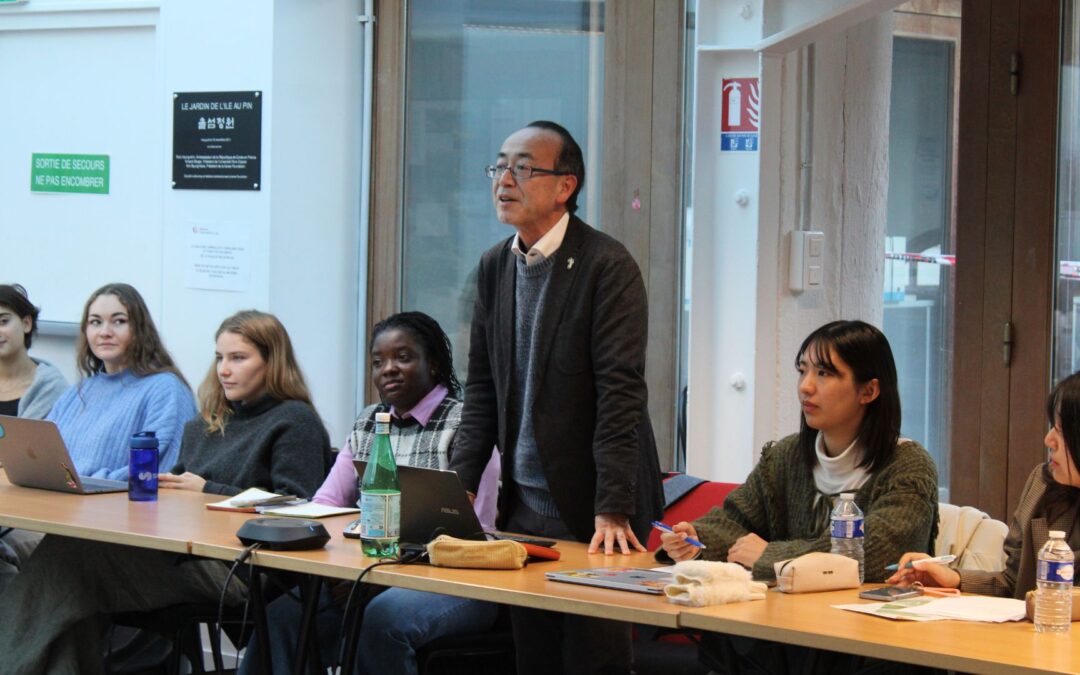
KEYS 2025 International Conference: A Franco-Japanese Meeting on Ecological Transitions with the University of Kitakyushu
The Graduate School Sustainability and Transitions co-organised a new edition of the international KEYS (Knowledge Exchange by Young Scholars) conference in partnership with the University of Kitakyushu. Held in a hybrid format between Paris and Kitakyushu, this...
![[International PhD] The University of Toronto and UPCité launch a new joint call for proposals](https://sustainability-transitions.u-paris.fr/wp-content/uploads/sites/13/2025/06/Appels_a-1080x675.jpg)
[International PhD] The University of Toronto and UPCité launch a new joint call for proposals
The University of Toronto and the Université Paris Cité and are launching a joint call for proposals in order to further develop their research collaboration and doctoral program strength.
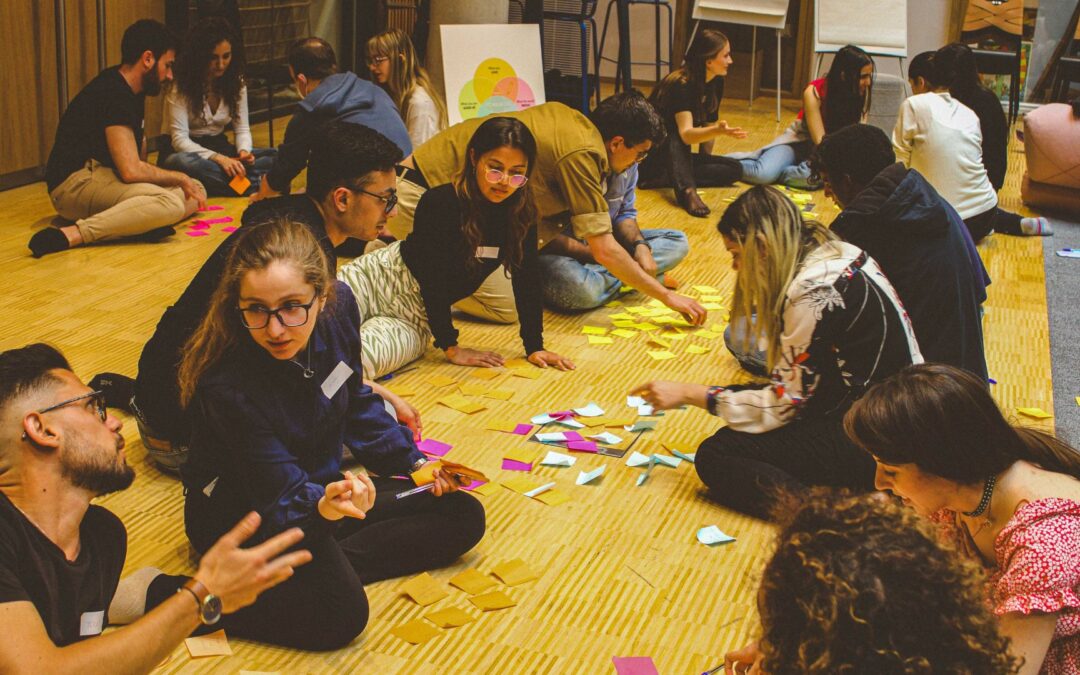
Studying in a Université Paris Cité Graduate School
Graduate Schools combine master’s degree and doctorate programmes, supported by research laboratories. This means that students can work on a wide range of relevant problems, benefiting from the diversity of these courses and the feedback of students who have…

Three New Graduate Schools at Université Paris Cité
Graduate Schools strengthen the ties between education and research and also contribute to the national and international reputation and appeal of Université Paris Cité. Bringing master’s and doctoral courses together, they offer cross-disciplinary teaching…

